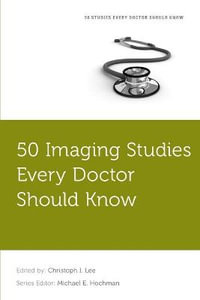
At a Glance
362 Pages
4.3 x 17.3 x 27.9
Paperback
RRP $136.95
$85.75
37%OFF
or 4 interest-free payments of $21.44 with
orAims to ship in 5 to 10 business days
"While clinicians in the intensive care unit increasingly rely on practice guidelines that take into account the best available published research data, sorting through the studies efficiently, and separating the good from the not-so-good is a daunting task even for seasoned practitioners, much less trainees. This superb effort by Dr. Bittner and his group of extremely accomplished and experienced clinicians is a huge step in the right direction. 50 Studies Every Intensivist Should Know provides an excellent list of the landmark studies in the arena of critical care medicine and should be required reading for all our residents and critical care fellows."
Hasan B. Alam, MD
Norman Thompson Professor and Head of General Surgery
University of Michigan
Industry Reviews
ISBN: 9780190467654
ISBN-10: 0190467657
Series: Fifty Studies Every Doctor Should Know
Published: 23rd March 2018
Format: Paperback
Language: English
Number of Pages: 362
Audience: Professional and Scholarly
Publisher: Oxford University Press USA
Country of Publication: US
Dimensions (cm): 4.3 x 17.3 x 27.9
Weight (kg): 0.48
Shipping
| Standard Shipping | Express Shipping | |
|---|---|---|
| Metro postcodes: | $9.99 | $14.95 |
| Regional postcodes: | $9.99 | $14.95 |
| Rural postcodes: | $9.99 | $14.95 |
How to return your order
At Booktopia, we offer hassle-free returns in accordance with our returns policy. If you wish to return an item, please get in touch with Booktopia Customer Care.
Additional postage charges may be applicable.
Defective items
If there is a problem with any of the items received for your order then the Booktopia Customer Care team is ready to assist you.
For more info please visit our Help Centre.










